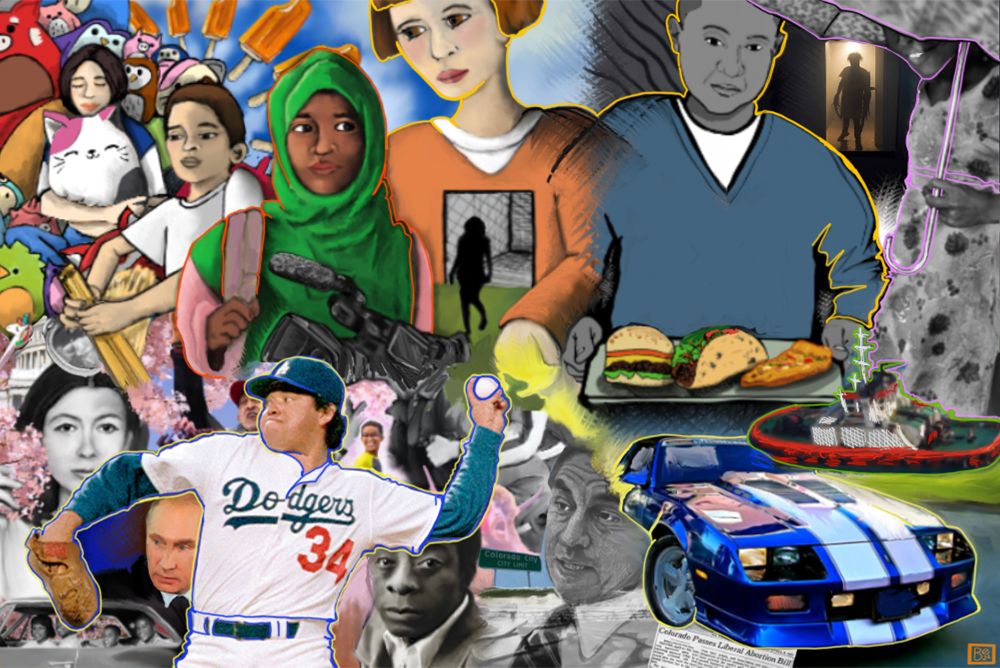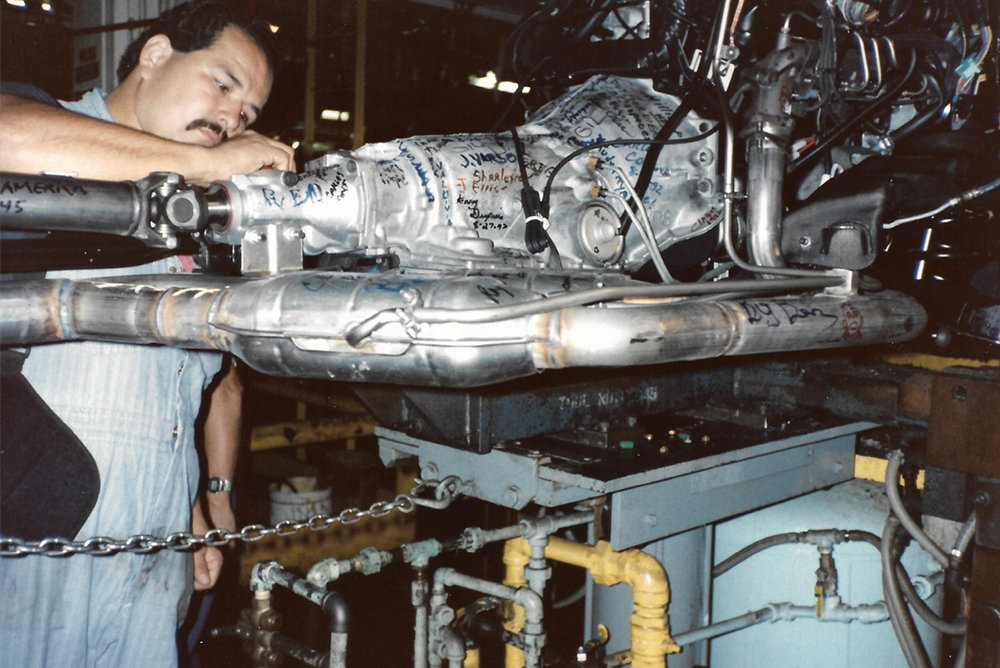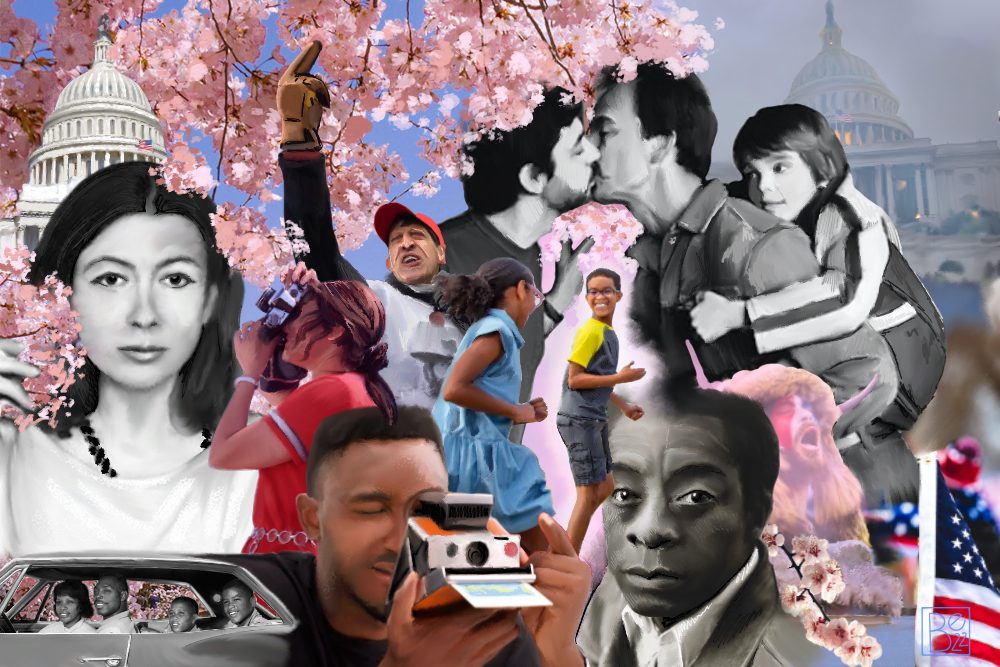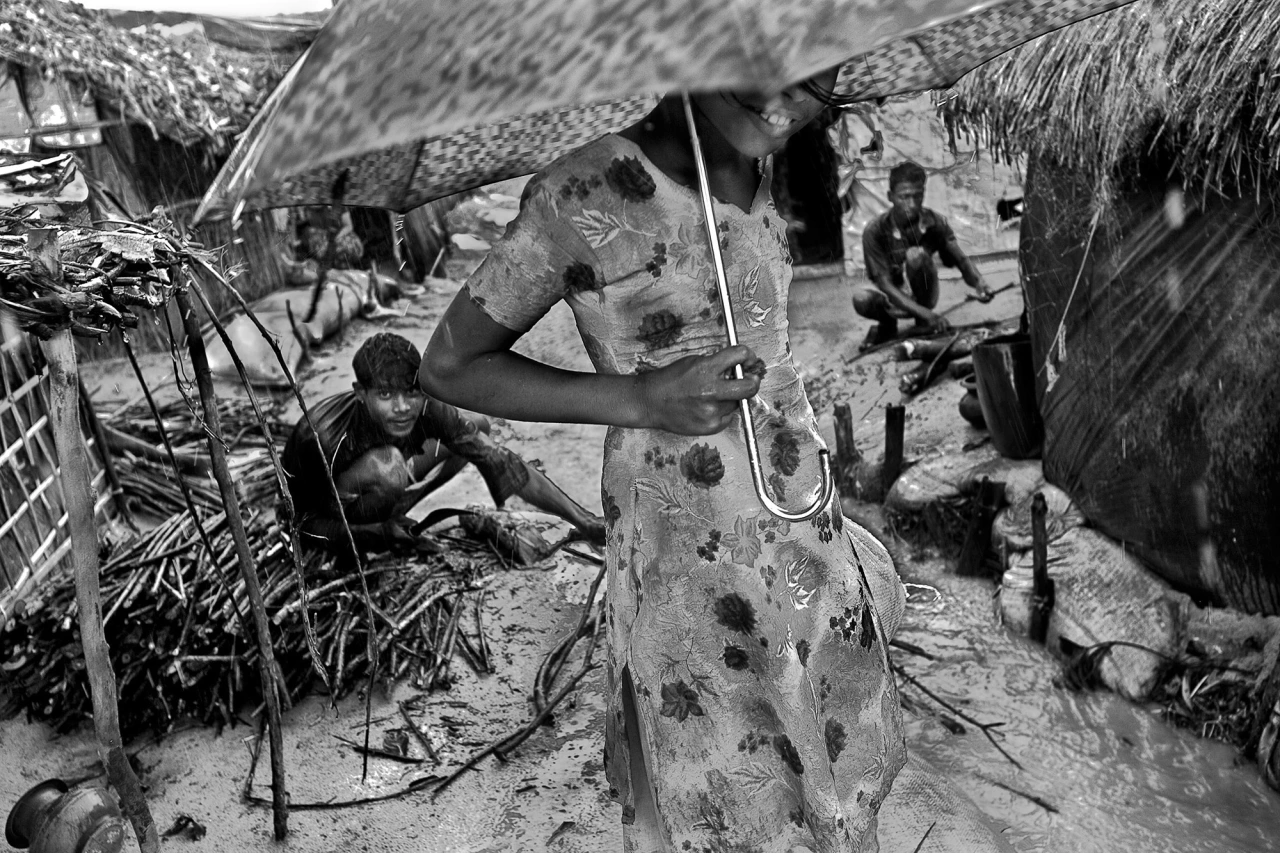
Illustration by Be Boggs.
In 2022, Zócalo’s contributors reported from the front lines of a changing world, looking to foster conversation—and curiosity—about the way we live now.
While selecting just 10 essays from the scores we’ve published this year is no easy task, the ones we’ve highlighted below reflect the best of Zócalo’s special, eclectic blend of ideas journalism with a head and heart. From a first-hand account of incarceration, to a case for how the global fight against authoritarianism can begin in your backyard, to even why, when feeling adrift, one might consider passage by container ship, here, in no particular order, are our staff’s favorite essays from 2022:
The Valley’s Last Camaro
San Fernando Valley aficionado Andrew Warren and automotive writer Tim Moore pen an ode to the last Camaro to leave the Van Nuys General Motors assembly plant before it closed in 1992. Today, the cherry red Z-28 lives on, serving as a time capsule to a bygone era of life and labor in the Valley.

Van Nuys General Motors assembly plant’s “Last Camaro” became a “memento of what that plant had meant to [workers] and their community,” write Andrew Warren and Tim Moore. Courtesy of Leonard Stevenson.
How Horror Helps Your Brain
Mathias Clasen, director of the Recreational Fear Lab at Aarhus University, Denmark, studies why we’re drawn to the things that go bump in the night. “Recreational fear,” he explains, is a form of play behavior that prepares our brains to handle real-life horrors.
How the Kids Are Getting to All Right
As the youth mental health crisis worsened in recent years, young adult fiction writer Bree Barton decided to speak directly to young people to better understand the challenges they faced. For Zócalo and “State of Mind,” a partnership of Slate and Arizona State University, she shares what she learned—and the power that comes with letting tweens and teens shape their own narratives.
If You’re Latinx, Loving the Dodgers Is Complicated
USC professor Natalia Molina’s relationship with Los Doyers has never been easy. As someone who grew up in the shadow of the ballpark, she reflects on Dodger Stadium’s dark history of displacing Latinx communities, and how she still finds community in the bleachers.
When the Public Narrative Fails
In a fractured nation, writer David L. Ulin finds consolation in literature. He explains why today, amid the breakdown of American consensus, writers provide lucidity: “In staring down their circumstances directly, with grace and clarity, they offer a model of how I want to think and to behave.”

With the collapse of society’s public narrative, writer David L. Ulin looks to literature for consolation. Illustration by Be Boggs.
How You Can Spot—and Stop—the Next Putin
With his column “Connecting California,” Zócalo’s Joe Mathews has tirelessly chronicled the inner workings of the Golden State for 10 years. Now, Mathews is introducing a second column, Democracy Local, exploring how everyday people, all over the world, govern themselves at the local level. The spirit of the column is embodied by this piece, which makes the case for why, amid the rise of authoritarian leadership around this world, you—yes, you!—can stop the next Putin-in-the-making.
How My Republican Grandfather Helped Legalize Abortion
Editor-at-large Caroline Tracey weaves personal and intellectual histories to highlight how an unlikely coalition came together in Colorado in the 1960s to support abortion rights. In her essay, Tracey considers the motivations behind the players in this fight for reproductive freedom—one of whom was her own grandfather.
Why Food Vendors Belong in the Prison Yard
Food sales “remain the closest thing to direct contact that C-yard inmates have with the community,” writes David Medina, an inmate at the Substance Abuse Treatment Facility and State Prison in Corcoran, California. For the Zócalo/California Wellness Foundation Inquiry “What Would the End of Mass Incarceration Mean for Prison Towns?,” supported by the California Wellness Foundation, Medina writes about how these sales have had a positive impact inside and outside of prison walls.
Where I Go: A Big, Slow-Moving Boat
In 2013, Elena Legeros quit her publishing job in New York City to travel around the world as a passenger on container ships. Legeros shares how, out in the middle of the ocean, life aboard a container ship gave her “the space and time” to embrace herself.
What We Miss When We See the Plight of the Refugee
Our ongoing Zócalo/Mellon Foundation inquiry delves into complicated histories around the world, confronting the past in order to better understand it, and to forge paths forward. In response to the central question, “How Should Societies Remember Their Sins?,” political economist Mausumi Mahapatro draws on her work with Rohingya refugees in the world’s largest refugee camp, in Bangladesh, to highlight the social and political lives they carry with them and create anew.

Mausumi Mahapatra works in refugee camps in southeastern Bangladesh, which house close to 1 million Rohingya, like the woman photographed here. Courtesy of Saiful Huq Omi/Counter Foto.




Send A Letter To the Editors